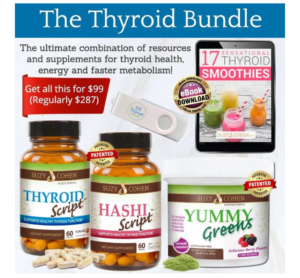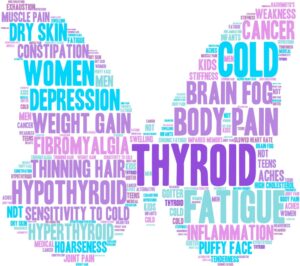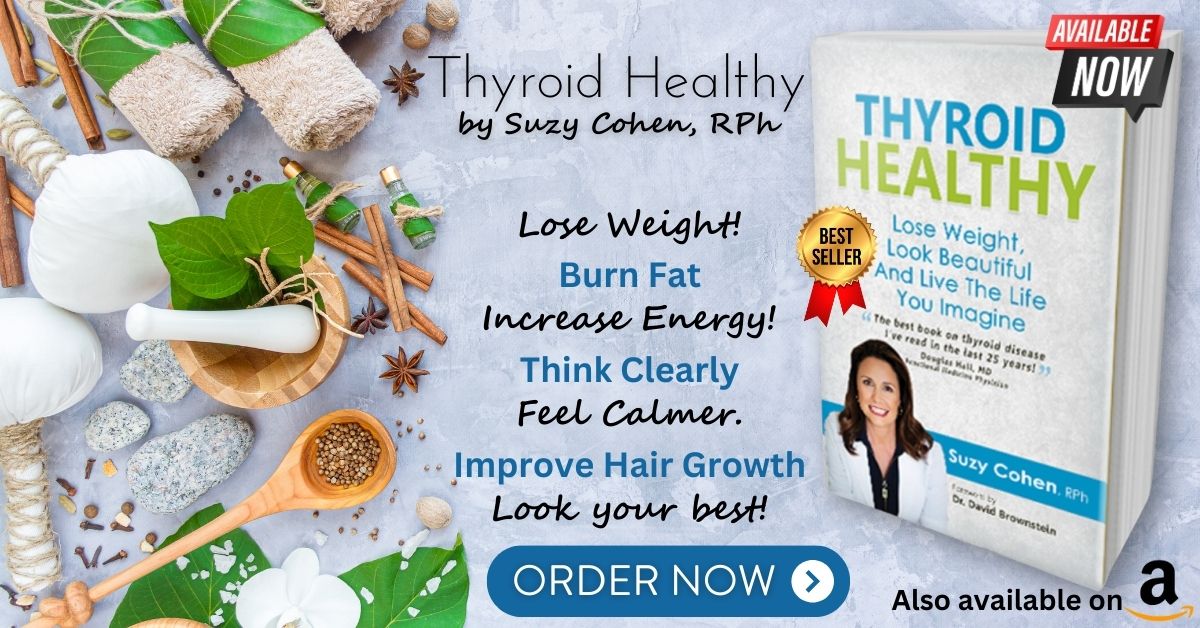What's On This Page?
ToggleIn the whirlwind of information presented at our Thyroid Summit interview series (AVAILABLE HERE), many of you reached out with a common thread of uncertainty: Navigating the complex world of thyroid medications, especially when dealing with Hashimoto’s disease.
John C. from Chicago, Illinois put it succinctly, echoing the concerns of many of you: What should I be taking if Armour doesn’t work for me?
This question isn’t just about choosing a medication, it’s about understanding our bodies’ unique responses to treatment and I can speak to that personally.
As a pharmacist with a keen interest in thyroid health, I’ve delved deep into the intricacies of thyroid disease management. My journey, both professional and personal, has taught me the importance of a tailored approach to treatment. Let’s explore the nuances of Natural Desiccated Thyroid (NDT) medications and synthetic options, drawing from the latest research and my own experience with thyroid health.
The Case For and Against NDT
Natural Desiccated Thyroid (NDT) medications like Armour have long been a staple in treating thyroid disorders. Derived from porcine thyroid glands, NDT provides a combination of T4 and T3 hormones, closely mimicking human thyroid hormone. Its affordability and long-standing use are significant advantages. However, the potential for allergic reactions and the peculiar challenge it poses for those with Hashimoto’s due to auto-immune responses cannot be overlooked.
Recent studies echo these sentiments. A 2023 review in the Journal of Clinical Endocrinology highlights the variability in individual responses to NDT, emphasizing the need for personalized treatment plans in autoimmune thyroid diseases. Another study from the same year, published in the Thyroid Research Journal, confirms the potential of NDT to exacerbate antibody production in some Hashimoto’s patients, recommending careful monitoring of antibody levels when using these medications.
Embracing Synthetic T4 Levothyroxine: A Viable Alternative?
For those adversely affected by NDT, synthetic levothyroxine presents a viable alternative. This synthetic T4 medication mimics the body’s natural thyroxine, potentially reducing the likelihood of autoimmune flare-ups. However, its effectiveness can be limited by the body’s ability to convert T4 to the more active T3 form, a process crucial for alleviating symptoms. This is why I developed Thyroid Script – it is intended to support activation.*

Incorporating findings from a 2024 study in the American Journal of Thyroid Research, it’s evident that optimizing levothyroxine treatment may involve addressing factors affecting T4 to T3 conversion, including nutrient deficiencies and gut health. Supplements like selenium, along with specific vitamins and probiotics, can play a crucial role in this process, as detailed in my book, Thyroid Healthy.
Medication Choices: Compare & Contrast
When comparing levothyroxine (T4) with Natural Desiccated Thyroid (NDT) medications, it’s crucial to understand their fundamental differences and how these can impact thyroid disease management.
Levothyroxine is a synthetic hormone that closely mimics thyroxine, the hormone naturally produced by the thyroid gland. It is purely T4, which the body must convert into triiodothyronine (T3), the active form of thyroid hormone used by cells.
This process allows for a more controlled and consistent dosing, which can be adjusted based on the patient’s T4 and TSH levels. However, some patients struggle with converting T4 to T3 efficiently, potentially leading to lingering hypothyroid symptoms despite normal TSH levels. Levothyroxine is often preferred for its consistency, ease of dosing, and lower risk of triggering autoimmune reactions in Hashimoto’s patients.
On the other hand, NDT medications are derived from porcine thyroid glands and contain both T4 and T3, providing a more “natural” ratio of thyroid hormones. This can be beneficial for patients who have difficulty converting T4 to T3, as NDT directly supplies both.
However, the ratio of T4 to T3 in NDT is not identical to the human thyroid output, which can complicate dosing adjustments for some patients. Additionally, because NDT is animal-derived, there’s a slight risk of variability between batches and a potential for allergic reactions.
Some individuals with Hashimoto’s may experience an increase in thyroid antibodies, potentially exacerbating their condition. Read my other article about the 5 potential (and most dangerous) complications of Hashimoto’s by CLICKING HERE.

In summary, levothyroxine offers a synthetic, consistent, and T4-only option, best for patients needing straightforward thyroid hormone replacement, especially those with Hashimoto’s thyroiditis.
NDT provides a combination of T4 and T3, mimicking natural thyroid hormone production more closely, which may benefit those who require both hormones for optimal function but carry a risk of variability and immune response.
Liothyronine Thyroid Medication
Liothyronine (T3) offers distinct benefits and advantages over levothyroxine (T4), particularly for patients struggling with the conversion of T4 to the active thyroid hormone T3. This synthetic form of the T3 hormone can be a game-changer for individuals who continue to experience hypothyroid symptoms despite having optimized T4 levels with levothyroxine. It could help you go from ‘thyroid sick’ to thyroid healthy!
The direct supplementation of T3 ensures that patients receive the active form of thyroid hormone immediately, potentially leading to a quicker improvement in symptoms such as fatigue, weight gain, and cognitive fog. Moreover, liothyronine has the advantage of a shorter half-life than levothyroxine, allowing for more precise dosing adjustments and a reduced risk of long-term hormonal imbalances.
This characteristic can be particularly beneficial in fine-tuning treatment for those with sensitive thyroids or for whom maintaining a stable metabolic rate is challenging. While levothyroxine remains the standard first-line treatment for hypothyroidism, the targeted use of liothyronine can offer a tailored approach to managing complex cases where levothyroxine alone does not fully address the patient’s symptoms, providing a critical tool in the personalized treatment of thyroid disorders.
My Journey: A Personal Testament
Reflecting on my journey with thyroid health, from the struggles to the triumphs, I’ve shared a before-and-after glimpse of my transformation in my book, and newsletter so you know what I’ve accomplished. It’s not just about the weight change; it’s about the profound impact of finding the right treatment on my overall well-being. Of the drugs mentioned, I prefer a combination of T4 and T3 drugs, however you want to get do that!
Conclusion: Your Path to Thyroid Health
Navigating thyroid disease treatment is a deeply personal journey. While NDT offers benefits for many, it’s not universally suitable, especially for those with Hashimoto’s. Synthetic options like levothyroxine, possibly complemented with T3 medications, can offer an alternative route. Remember, effective management often requires a holistic approach, addressing dietary, lifestyle, and nutritional factors.
For further insights into managing thyroid health, including tips on diet and supplements, I invite you to explore related articles on this website by using my search box. I have over a thousand articles I’ve written archived here, and in may, I delve deeper into strategies for living well with thyroid and many other diseases.

Suzy Cohen, has been a licensed pharmacist for over 30 years and believes the best approach to chronic illness is a combination of natural medicine and conventional. She founded her own dietary supplement company specializing in custom-formulas, some of which have patents. With a special focus on functional medicine, thyroid health and drug nutrient depletion, Suzy is the author of several related books including Thyroid Healthy, Drug Muggers, Diabetes Without Drugs, and a nationally syndicated column.

